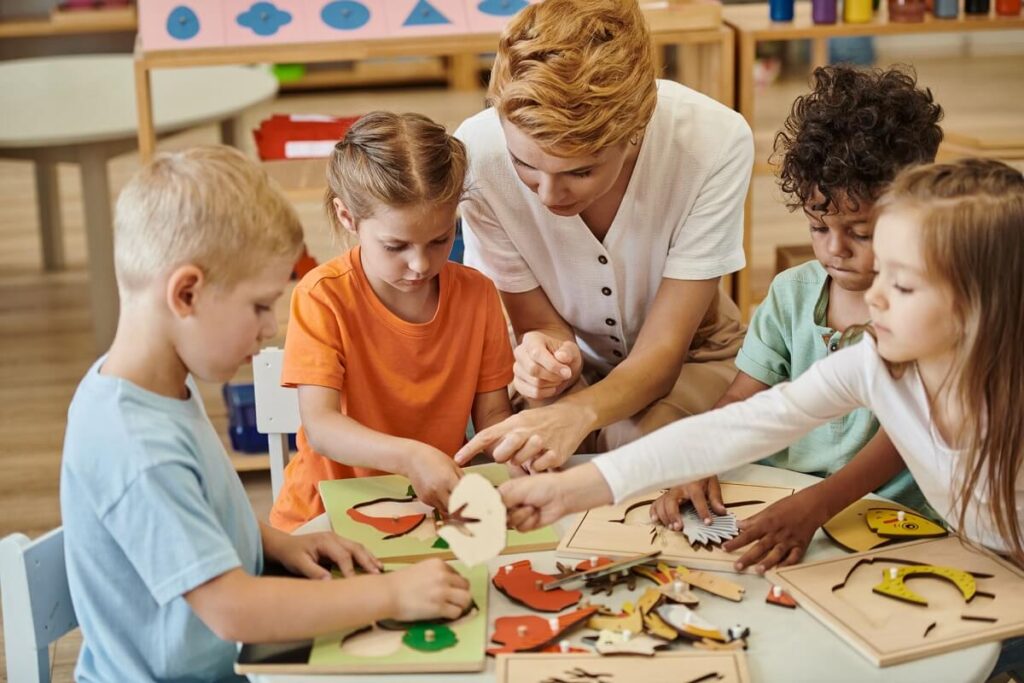
Why Montessori? If you’re in the process of selecting an elementary school for your child, you’ve probably heard countless opinions (welcome and otherwise) on which type of learning environment is best.
The truth is that while every type of school has its advantages and disadvantages, a Montessori elementary school is uniquely equipped to help every child thrive. Here’s a closer look at how.
1. Every Student Learns At Their Own Pace
In a traditional elementary school, each class has a curriculum with a fixed timetable. This model can be frustrating for any child who isn’t perfectly average. Kids who learn quickly frequently become bored and disinterested, and kids who have trouble can panic and feel like they’re constantly being left behind.
By contrast, in a Montessori elementary school, the curriculum adapts to the child — not the other way around. Each child moves on to the next lesson or concept once they’re ready. And because this approach ensures each student has a thorough understanding of each topic, children aren’t likely to have sizable learning gaps.
2. There’s a Focus on Hands-On Learning
One of the central tenets of Montessori philosophy is that children can’t learn without movement. For elementary school children (and for most adults, too), it’s easier to remember how to do something if you have a chance to do it yourself.
For instance, let’s say you want to learn to fix a lawnmower (and want to remember how to do it, too). If you read a booklet of repair instructions, will you remember how to do the repair two years from now? What if you read about the repair and then do it yourself?
Most people would have an easier time remembering if they’d had the hands-on experience, and kids are no different. In a Montessori elementary school, children engage with a topic in a hands-on manner before they have to use it in the abstract.
For example, before they are asked to solve multiplication problems on paper, Montessori students use a variety of tools to practice multiplying. Sets of beads on sliders, stamps, boards, and other tools let them see and feel the process, so they’re more likely to remember it.
3. Children Learn From One Another
In most elementary schools, children do their work individually, only asking the teacher if they need help. However, in a Montessori school, kids work in mixed-age groups.
This type of environment shows students they can learn from people who are different from them. It also teaches them how to create a sense of real community, fostering social development alongside academic development.
4. Montessori Emphasizes Whole-Child Development
In a traditional elementary school, kids might develop socially to some extent. However, the primary focus is on academic growth. This is one of the areas where Montessori differs greatly from more mainstream learning.
Montessori elementary schools don’t only help kids thrive intellectually — they see each child as a whole being to be nurtured.
In a Montessori classroom, instructors support children as they grow emotionally, physically, socially, intellectually, and spiritually. Throughout the process, elementary schoolers become compassionate and empathetic while also pursuing their own goals.
Thinking About Montessori Elementary School?
The elementary school years are a time of tremendous growth. If you want to help your child get the most out of this critical time, it’s worth considering Montessori. At Montessori School of Flagstaff, our Switzer Mesa Campus hosts lower elementary (grades 1-3) and upper elementary (grades 4-6) students as they learn and grow. Reach out to us today to schedule a tour!
